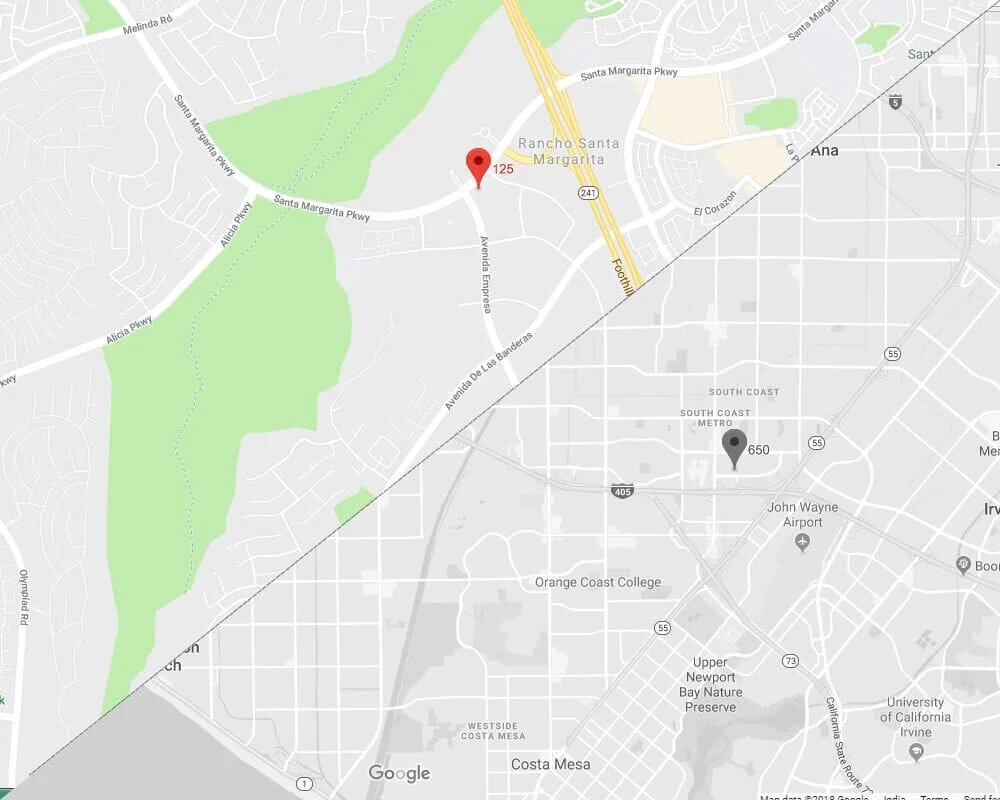Riverside Homicide Defense Attorney

Riverside Homicide Defense Attorney
A homicide charge for you or a loved one is one of the most serious and potentially life-altering charges that a person can face. Any kind of criminal conviction can have a negative impact on a person’s future, but certain offenses carry more weight in our legal system and should be faced with a dedicated Riverside homicide defense attorney. At Brown & Stedman LLP, our experienced team is here to advocate for your rights in Riverside, CA.
The term “homicide” refers to the murder of another person. If convicted, homicide charges can bring sentences that include large fines as well as years in state prison.

Brown & Stedman LLP: Your Criminal Defense Attorneys in Riverside, CA
The criminal defense attorneys at Brown & Stedman LLP are compassionate and client-centered. We want to help you achieve the greatest possible outcome for your homicide case and your future life. We offer personalized representation, decades of experience, and a vast amount of knowledge of the intricacies of California criminal law and the local legalities in the Riverside area.
Our firm can work closely with you to unerringly understand your unique circumstances, the details of your case, and your goals moving forward. We are dedicated to finding the ideal solution to your charge and protecting your legal rights.
Edwin B. Brown has nearly four decades of experience with various types of legal cases, including criminal law. Mr. Brown has appeared hundreds of times to argue appeals in the California Appellate Courts, the California Supreme Court, and the Ninth District Federal Court of Appeals.
Michael Stedman represents criminal law clients and also has decades of skilled litigation before the California court system. His empathetic approach, coupled with extensive knowledge and resources, can assist you in crafting the most ideal legal defense in accordance with your rights, your case, and your future endeavors.
The criminal defense attorneys and legal team at Brown & Stedman LLP have cumulatively argued hundreds of cases and attained positive results for clients facing murder charges. Our ability to reduce needless delays, keep expenses minimal, and offer advice and answers during an extremely stressful time has given us a positive reputation in the legal community and a long-time success record.
What Exactly Is Homicide?
Even if a death is caused accidentally, a homicide charge will be issued in any situation where a person kills another person. Murder is the most serious type of homicide. Forms of homicide other than murder demonstrate lesser levels of intent, such as manslaughter, vehicular homicide, and reckless homicide. Cases that fall under self-defense are not considered punishable under the law, but such situations are rather rare.
The most basic types of homicide are as follows:
- Murder
- Manslaughter
- Felony Murder
Often, homicide cases also lead to wrongful death claims in civil court. This is due to the family members of the victim seeking restitution and suing the person charged with homicide for monetary compensation.
Even if your criminal case awarded you a verdict of “not guilty,” you can still face a civil claim. There is no criminal punishment in a wrongful death case if you lose, as the family is suing for monetary damages. A wrongful death case also can take place before the criminal case, although this is less common.
First-Degree Murder Charges in California
Murder in the first degree is defined as such when a person kills another person and the charges indicate their act to be both intentional and premeditated. In short, the alleged perpetrator took time to plan how, when, and where to kill the victim. The three basic components of a first-degree murder charge are that the alleged perpetrator showed “willfulness,” “deliberation,” and “premeditation.”
First-degree murder also occurs if a murder takes place in conjunction with a serious felony, such as kidnapping, rape, or burglary. In addition, first-degree murder charges of premeditation include torture and lying in wait for a victim.
It can also involve a variety of weapons, such as poison, explosive devices, and firearms. One caveat to first-degree murder is if the victim survives for three years and one day after the murder allegedly occurred. This negates the charge, and the prosecutor can only continue to pursue a conviction of first-degree murder with a rebuttal.
The Consequences of a First-Degree Murder Conviction in California
If a person is convicted of first-degree murder in California, they can be given a sentence of:
- Incarceration in state prison for 25 years to life
- Life imprisonment in a state prison with no possibility of parole
- The death penalty by lethal injection
The decision handed down by the court is one that undergoes careful consideration. For instance, a sentence of life in prison without parole or death is given to:
- Defendants who committed first-degree murder while attempting another felony, such as robbery, rape, or kidnapping
- A defendant who attempted to avoid lawful arrest
- A defendant who attempted murder with a bomb or other explosive device
- A defendant whose intent to murder was motivated by financial gain
Another circumstance that can confer a life sentence without parole or death occurs when the person is convicted of committing first-degree murder of:
- An officer of the peace
- A federal law enforcement officer
- A firefighter
- A judge
- A prosecutor
Additionally, California state law acknowledges the severity of murders that involve torture by enacting the most severe forms of punishment to account for exceptional cruelty.
Second-Degree Murder Charges in California
What separates second-degree murder from first-degree murder in California is that, although the killing of another person is committed with malice aforethought, it was not committed with deliberation and premeditation. Some examples of second-degree murder include:
- A person shoots a gun into a crowd and kills someone, even if the intent to kill was not present.
- A driver who has accumulated multiple DUIs causes an accident which, in turn, kills another person.
- An individual aggressively causes an injury to another person who is unable to defend themselves, which leads to that person’s death.
A second-degree murder charge, and subsequent conviction, carries a sentence of 15 years to life in state prison. However, certain circumstances within the individual case may increase a person’s sentence:
- If the defendant has a prior murder conviction on their record, they may face a sentence of life in prison.
- If the murder victim was a peace officer, the defendant could get 25 years to life in prison.
- If the victim was an officer of the peace and the defendant demonstrated an intention to kill or cause great bodily harm, then the sentence would be life in prison without parole.
The Consequences of a Second-Degree Murder Conviction in California
Because it is considered a violent crime in California, second-degree murder is a felony charge. If you are convicted of this crime, expect to face 15 years to a life sentence in state prison. Second-degree murder also falls under California’s 3 Strikes Law.
A person convicted of three violent crimes will be handed a sentence of 25 years to life in state prison. A double sentence may be issued by the judge if the offender has become what is called a “double striker” under the 3 Strikes Law.
Additional penalties will be issued if the alleged perpetrator commits murder against an officer of the peace or if they have a prior murder conviction. For these crimes, especially if a person is proven to have committed a premeditated murder against a peace officer, the sentence will be life in state prison without the possibility of parole.
Manslaughter Charges in California
Under the California Penal Code, manslaughter is similar to murder in that it constitutes the unlawful killing of another person. However, the crucial difference is that manslaughter is committed without malice. Under California Penal Code 192, manslaughter can be identified under three different categories, which include voluntary, involuntary, and vehicular.
Voluntary manslaughter pertains to a situation in which one person kills another in the heat of the moment or in an unreasonable belief that the accused must defend themselves. Involuntary manslaughter occurs when a person is negligent, reckless, or ignores normal safety measures and, in doing so, causes the death of another person.
A vehicular manslaughter charge accompanies an incident of reckless driving that causes the death of another person. This includes driving under the influence of alcohol or drugs and causing an accident that inadvertently kills another person in their vehicle.
Vehicular manslaughter is the third category of manslaughter. It occurs when an individual is driving a vehicle in such a reckless or illegal way that they kill another person. Some common examples include:
- Texting while driving
- Driving while under the influence of drugs or alcohol
- Purposefully driving over the speed limit
- Attempting to hit another person or object
The Consequences of a Manslaughter Conviction in Riverside, California
The consequences for a manslaughter conviction in California depend on the type of manslaughter conviction issued by the judge. For a prosecutor to achieve a voluntary manslaughter conviction, they must prove that the defendant committed murder during a heated or passionate situation. This proves that there was no malice or planning involved in the killing.
Instead, the defendant committed the crime due to some sort of provocation that they faced at the moment they committed the act. However, the manslaughter charge will show that the defendant did intend to inflict grievous harm or death at the time of the incident.
If convicted of voluntary manslaughter, the defendant will be issued a mandatory prison sentence of 3-11 years or probation with up to 1 year in county jail. Additionally, there may be other penalties, including fines of up to $10,000, community service, and counseling sessions.
In the case of an involuntary manslaughter conviction, the prosecutor must prove that the alleged perpetrator caused a crime resulting in homicide but did not have any prior intent to do so. Historically, involuntary manslaughter charges are issued during lawful activities where the defendant has acted recklessly or unreasonably.
They then made lethal mistakes that caused the death of another. If convicted, a judge will issue a punishment of 2-4 years in county jail or state prison. Often, the state will also take into consideration the defendant’s prior criminal record, if any, and use this to influence the duration of prison time.
The Felony Murder Rule in Riverside, CA
A felony murder conviction can also lead to a life sentence in prison for the alleged perpetrator. A person will be charged with felony murder if they are attempting to commit a felony and, in doing so:
- Directly kills another person
- Kills an on-duty police officer
- Aids and abets another person in first-degree murder
The final consequence for the defendant depends on their defense, but it could involve at least 25 years in state prison. If the offense is egregious enough, it may result in life in prison or even the death penalty.
Possible Defenses for Murder Cases and Manslaughter Charges
Trustworthy representation is essential if a person is arrested for a criminal offense, especially if the person is charged with murder. Even the most severe charges do not exclude American citizens from exercising their right to legal counsel, and there are many possible defenses to consider when faced with a potential homicide conviction.
Homicide convictions are generally classified into the categories of:
- Murder
- Manslaughter
- Justifiable Homicide
Some subcategories of murder include first-degree murder and second-degree murder. A person arrested and charged with any category of homicide can be advised to use different defenses depending on the specific details of the case. Some of these defenses include:
- Insanity defense
- Self-defense
- Intoxication
- Exercise of duty
An aggressive and knowledgeable criminal defense lawyer can offer sound advice regarding the possible defenses for your individual circumstances.
In California, the defendant can only be convicted if the prosecutor proves beyond a reasonable doubt that they are guilty of committing murder intentionally, with a specific state of mind known as “malice aforethought.” Furthermore, they must show that the accused had no justification for committing homicide, such as self-defense or involuntary intoxication.
California upholds the death penalty as punishment for certain categories of murder crimes. Murder convictions also carry the possibility of a sentence of imprisonment for life without parole. Because homicide convictions carry such grave consequences, it is crucial for a person who has been arrested and charged with this crime to employ an attorney who focuses on criminal cases and can advocate on their behalf throughout the entire process, from the arrest to the judge’s final decision.
Under California Penal Code 187, there are numerous defenses that your attorney can advise, depending on the details of your case. Some of these defenses include:
- Self-defense or the defense of others
- Mistaken identity
- Insanity
- Accidental killing
- Preserving the peace/citizens’ arrest
- Coerced confession or unlawful search and seizure
A compassionate attorney can explore these avenues and more when crafting your defense. Because of the intricacies of criminal law, it is most advantageous to allow a criminal defense attorney to handle your case and determine the most effective type of defense.
Expungement of a Criminal Record in California
A criminal conviction can be a problem even after a person completes their sentence in full. You may find that:
- Your job opportunities have disappeared.
- You may be denied financial aid.
- You may be unable to freely choose where to live.
If your criminal record is negatively affecting your quality of life, or if you have an arrest record but no conviction, you may be eligible for record expungement.
To clear your record, an attorney can assist you with petitioning the criminal court for an expungement. Provided that a person meets all the necessary criteria and can prove that they served out all assigned penalties in full, you may then be allowed to explain the reason behind your seeking expungement.
Often, this reason pertains to employment opportunities, but it may also be a personal matter. No matter your reasoning, it should be disclosed to the court. A judge has the final discretion in determining if a person’s record should be expunged or if it is actually better for the public to have this crime remain accessible to anyone searching.
A person who commits homicide, manslaughter, or any other serious violent crime that was then punished by prison time is not allowed to get their record expunged. Likewise, sex offenders who committed a crime against a minor cannot be an expunged record. If you are currently serving a criminal sentence or are charged with another crime, you likewise will not be eligible.
Contact Brown & Stedman LLP
Our legal team is dedicated to problem-solving on behalf of our clients. If you are facing a homicide charge of any kind, we can help you understand your rights and craft a personalized defense that can honestly and knowledgeably give you the greatest possible outcome for your future.
A criminal charge is a life-altering event, and you do not need to face any pressure or stress leading up to your court date. Give yourself the opportunity to tell your side of the story with excellent legal representation on your side. Contact our office today to schedule a consultation so we can begin advocating for you immediately.
Learn More About What We Can Do To Help
We invite you to call us at 949-459-5900 to schedule your free initial consultation. You can also reach our firm by contacting us online.
Tell Us About Your Case
Each time we take a case, we look at the big picture: What can we do to best help solve the problem as efficiently as possible. We use our experience and creativity to propose solutions that allow you to put your legal matters behind you.
© 2025 Brown & Stedman LLP. All rights reserved.









